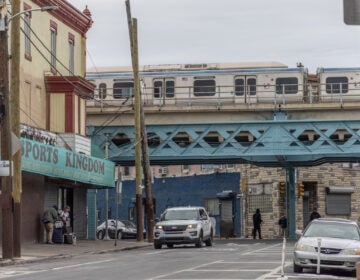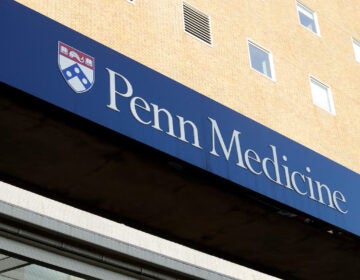Beer gardens pop up on the waterfront for Philly River Stroll
The Delaware River Waterfront Corporation brings back summertime food and drink, with COVID restrictions.

The Water Garden at Spruce Street Harbor Park offers socially distant dining for up to 125 people. Reservations are required and guests are limited to a two-hour stay. (Emma Lee/WHYY)
Are you on the front lines of the coronavirus? Help us report on the pandemic.
The summertime amenities that pop up along the Delaware waterfront in Philadelphia are a draw every year; however 2020 is not like other years. The Delaware River Waterfront Corporation wants the river’s edge to be popular, but not too popular. During a pandemic, nobody wants to see crowds.
The Spruce Street Harbor Park opened quietly this summer with little fanfare. The hammocks strung between trees are gone. The beer garden on floating barges requires reservations in advance. There are no concerts or large events programmed.
The DRWC is being careful not to bring in anything too enticing.
“We are purposefully being more strategic about how we message and tell people how to enjoy the waterfront,” said the DRWC director of communications, Almaz Crowe. “We have not programmed any concert or large event that will bring in large crowds. We realize this is a disappointment to some. We want to see people enjoying themselves, but it will be on a much, much smaller scale.”
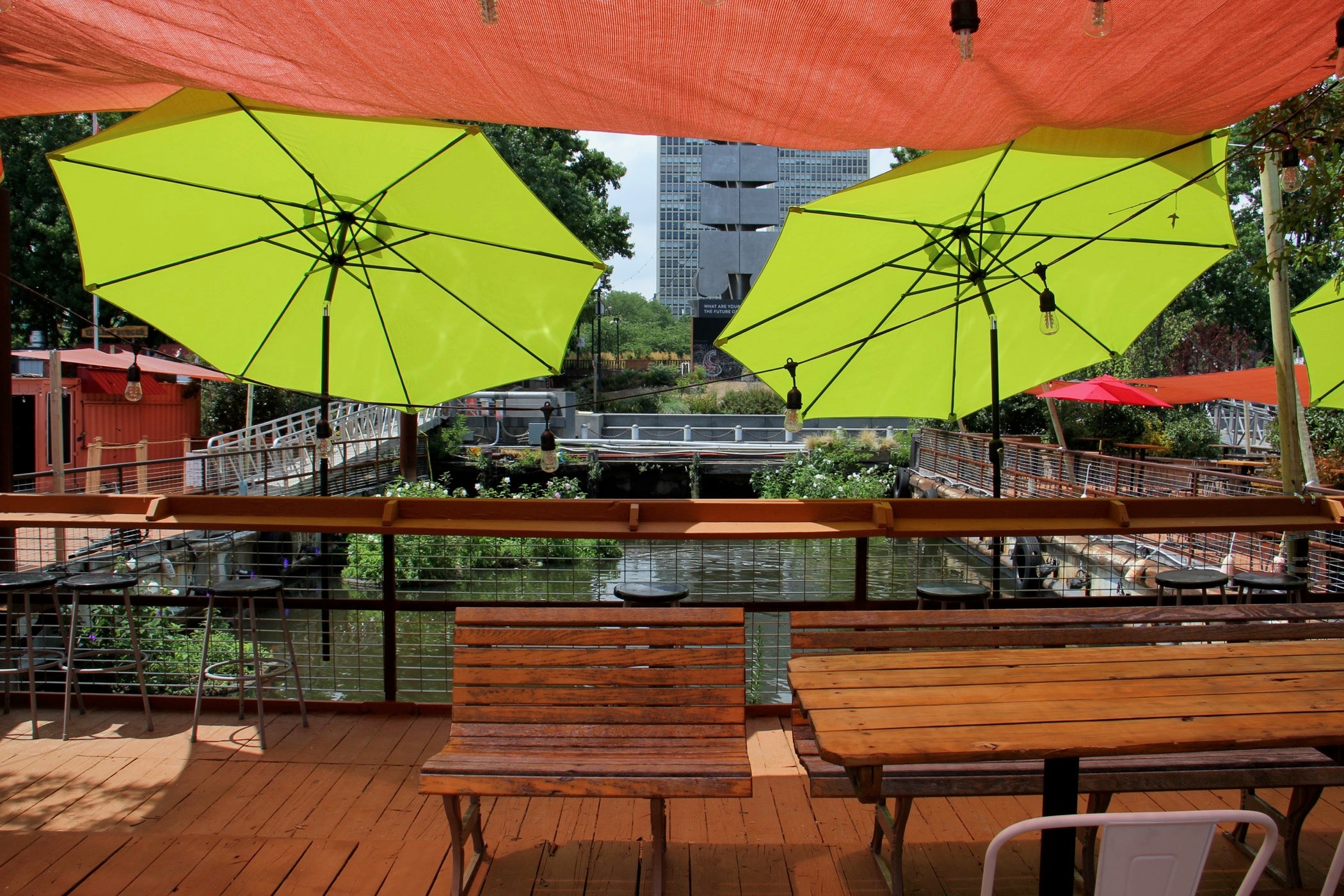
For food services, the DRWC reached out to restaurateur Avram Hornik, who owns several places in the city including Morgan’s Pier, Harper’s Garden, and Rosy’s Taco Bar. He came up with Philly River Stroll, a 3-site concept that offers beer and light menu fare while enforcing the kind of social distancing needed during the summer of COVID-19. The stroll stretches from Race Street Pier to Cherry Street Pier and down to Spruce Street Harbor Park.
“The Delaware River Waterfront Corporation has all these wonderful public spaces, but public space is not our friend at this time,” said Hornik.
What all these spaces have going for them is they are outdoors, offering not just al fresco riverbank dining but open-air ventilation that reduces the risk of infection. To use them safely, Hornik imposed a reservation system: at the Cherry Street Pier beer garden, and the floating water garden barges at Spruce Street Harbor Park, seating must be arranged online in advance.
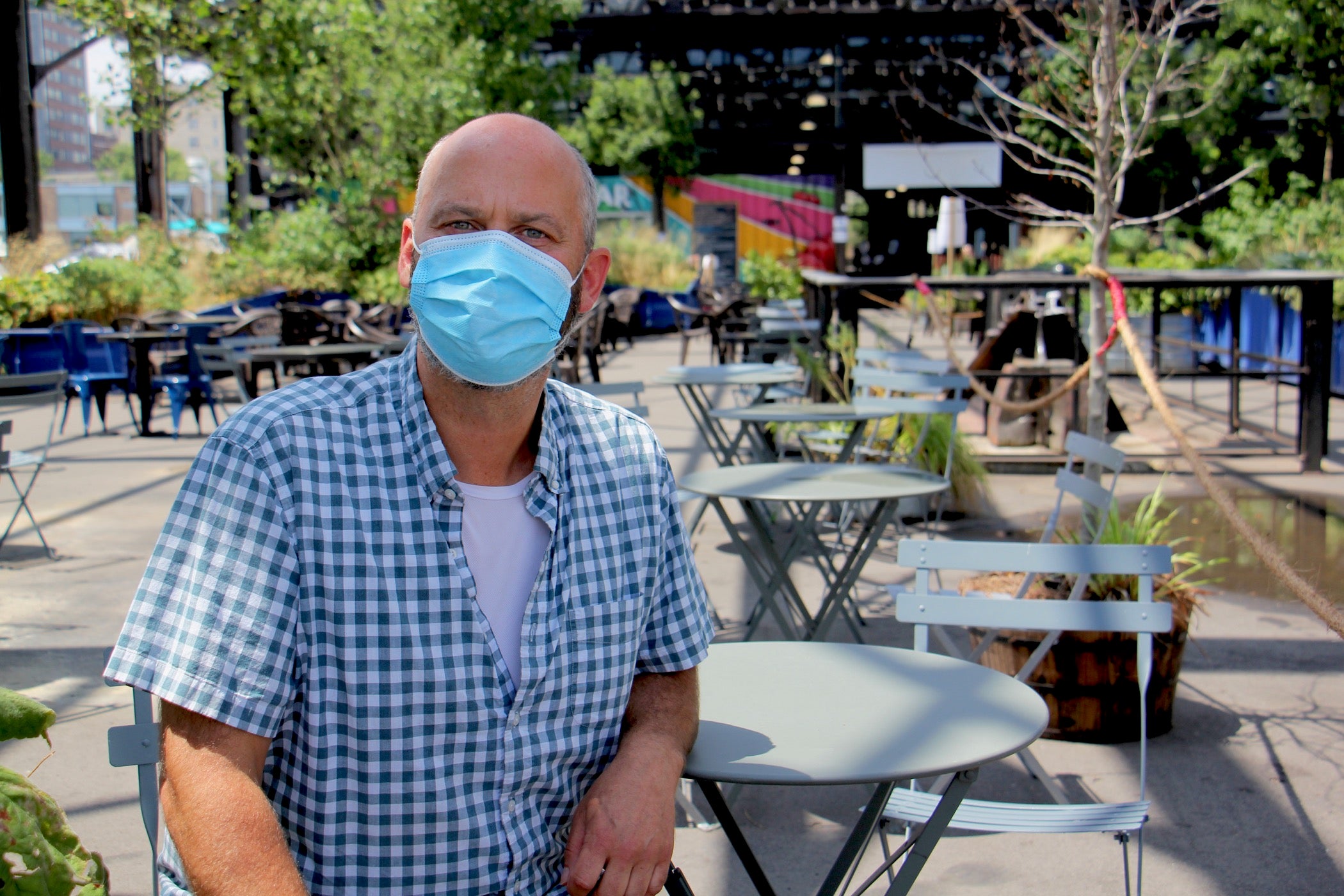
Seating times are staggered to reduce crowds, and the duration of your stay is capped at two hours. Patrons are issued color-coded wristbands according to when they arrive; when their time is up they will be approached to leave.
A kitchen inside a converted shipping container makes simple dishes like pulled pork and summer salads. Food can be ordered through a window on-site. There is no table service.
At the Race Street Pier, no reservations are required. A beer truck on the sidewalk sells pints on tap and prepared and packaged food that can be consumed on sidewalk picnic tables or taken onto the tiered, landscaped pier jutting out over the river, furnished with benches.
Although the three spots together are branded as the Philly River Stroll, people are not encouraged to walk around with drinks in hand. Once seated, the DRWC wants you to stay put.
Complicating matters is the fact that these are all public spaces, meant to be accessed by anyone. That was the whole point of DRWC converting underused waterfront real estate into parks, to draw the public to the water.
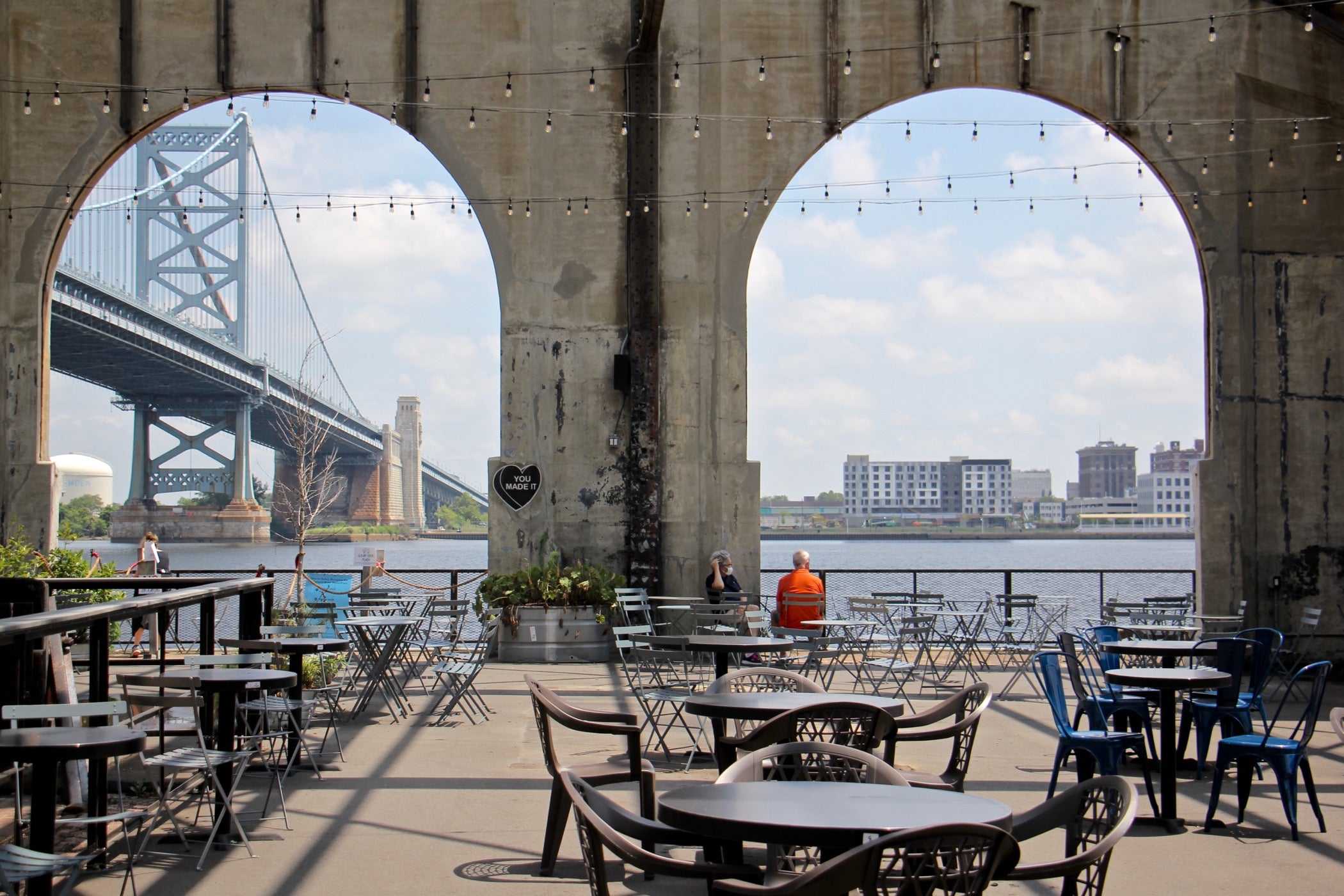
So how do you impose crowd-control measures on public parks? The solution Hornik and DRWC came up with was to designate certain areas as restricted to dining reservations, and others are open without restrictions. About a third of the Cherry Street Pier’s outdoor garden can be accessed by any passerby that wants to watch at the slowly churning river, the rest is roped off. The boardwalk of Spruce Street Harbor Park is available to anyone, but the floating barges require a reservation. Race Street Pier has no access restrictions.
“During these COVID pandemic times, no one wants to be in the restaurant business,” said Hornik. Serving customers, while keeping safe from a virus outbreak that changes constantly, is a dance for which no one knows the steps. Right now, outdoor dining during pleasant weather seems to be the best way to go.
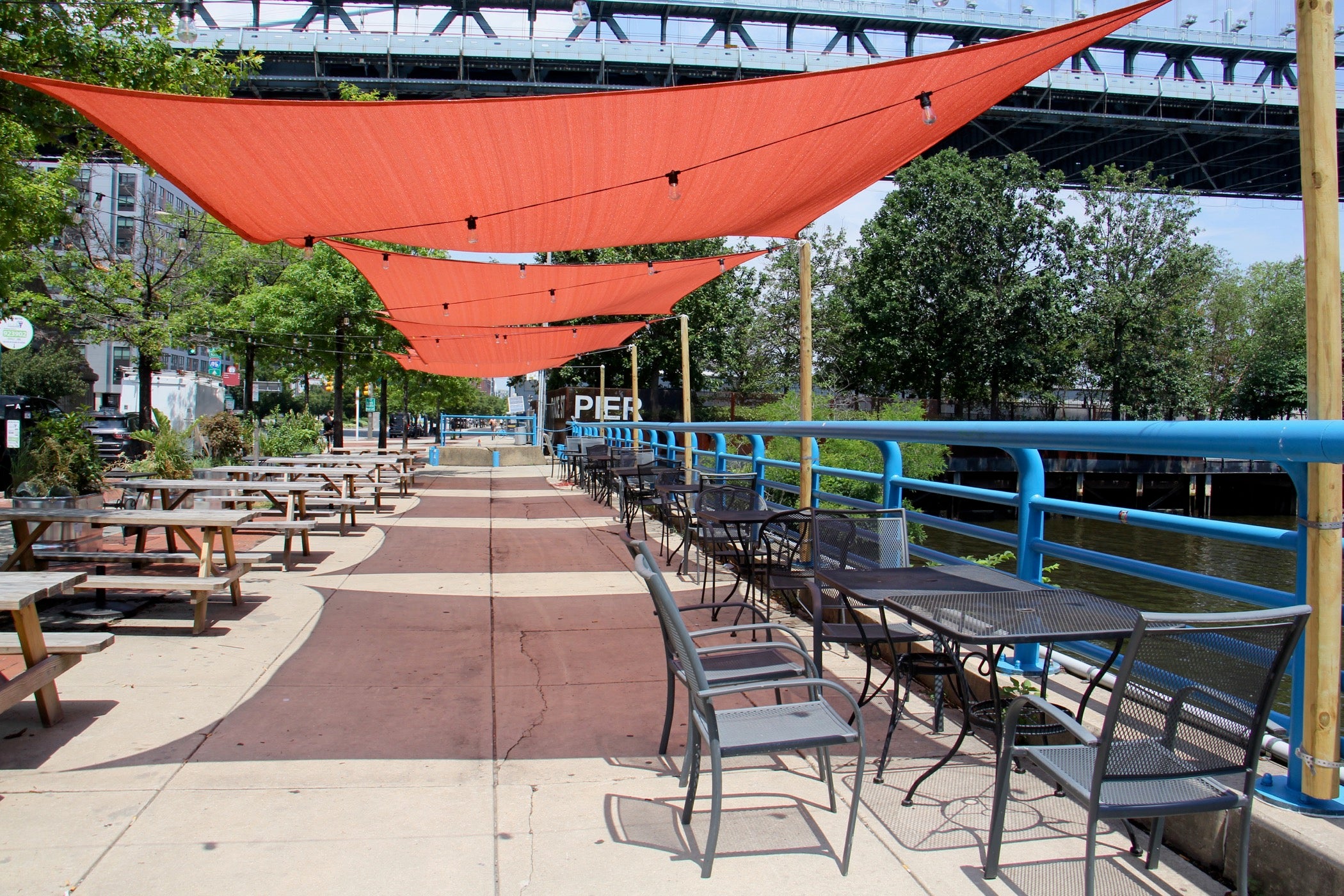
“The season is really short. Indoor dining doesn’t seem like it’s going to be safe until there’s a vaccine,” said Hornik. “We have a short window to serve people and save up some money to last through winter. If there’s an opportunity, we’re going to take it now.”
The DRWC intended to use this reservation dining system this year only. Next summer, should the pandemic release its grip, the seasonal parks will revert to more relaxed eating and drinking.

Get daily updates from WHYY News!
WHYY is your source for fact-based, in-depth journalism and information. As a nonprofit organization, we rely on financial support from readers like you. Please give today.



![CoronavirusPandemic_1024x512[1]](https://whyy.org/wp-content/uploads/2020/03/CoronavirusPandemic_1024x5121-300x150.jpg)
